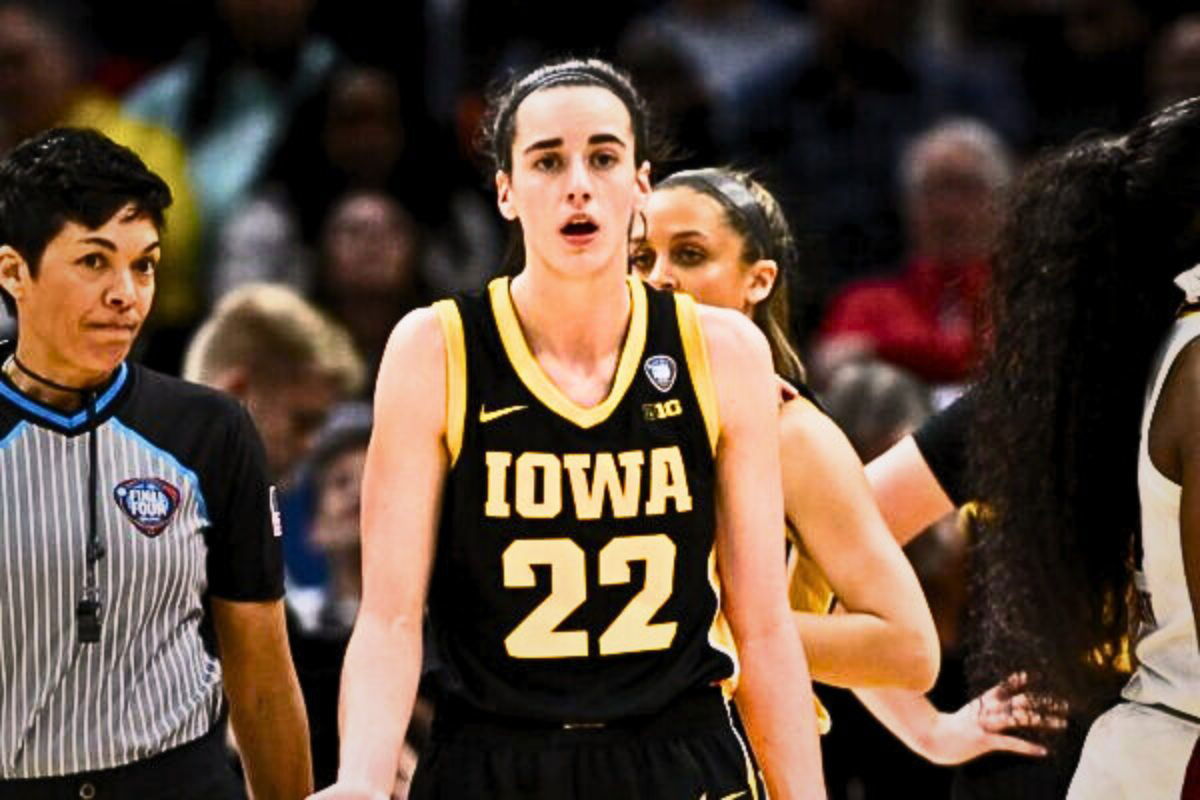

Caitlin Clark—the rookie sensation who took the WNBA by storm—has kept the league buzzing, even in the offseason. And rightfully so, for a rookie that has captured the attention of 2.5 million people in a single game. Fans and pundits alike are still raving about her stardom, but this analyst would like you to look beyond the flashing lights and take in the big picture.
Watch What’s Trending Now!
In a recent episode on “A Touch More” a podcast hosted by Sue Bird and Megan Rapinoe, Jemele Hill addressed the narrative surrounding WNBA playoff ratings, expressing concern over how Clark’s presence has dominated the conversation. Hill said, “I’ve been arguing with people… about how the narrative around the WNBA playoff ratings has been framed, and frankly, that narrative is terrible.”
She pointed out that while Clark’s 2.5 million viewership is a great win for the W, some are missing the broader context. For Hill, the real headline would be the WNBA’s continued success, even without Clark on the court. Especially as America’s most popular sport hits the broadcast.
ADVERTISEMENT
“They’re up against the NFL and they were on ESPN 2. There was like a lot of a lot of factors and to still get that number and peaked at 1.2 million, that is incredible… that’s a record for a semifinal game right? That to me is the headline,” she stated, while referring to the semifinal game that set a record for the WNBA’s most-viewed semifinal in 22 years. The Las Vegas Aces-New York Liberty semifinal game averaged 929,000 viewers on an NFL Sunday.

Getty
LAS VEGAS, NEVADA – MAY 13: Breanna Stewart #30 of the New York Liberty drives against A’ja Wilson #22 of the Las Vegas Aces in the second quarter of their preseason game at Michelob ULTRA Arena on May 13, 2023 in Las Vegas, Nevada. The Aces defeated the Liberty 84-77. NOTE TO USER: User expressly acknowledges and agrees that, by downloading and or using this photograph, User is consenting to the terms and conditions of the Getty Images License Agreement. (Photo by Ethan Miller/Getty Images)
So that’s something Hill wishes more focus was laid upon. “Instead all the headline are, ‘tremendous WNBA playoff drop off in ratings from Caitlin Clark’s game to this one.’ I am like ‘you guys,'” Hill expresses.
ADVERTISEMENT
That’s a point Sue Bird agrees with. On her podcast previously, the Seattle Storm icon ensured to highlight how the semifinals have seen a 130% increase, all in the absence of Clark. The Game 1 of the Finals even recorded 1.14 million viewers—the highest since 1998. The signs all point toward the growth of the WNBA but Clark’s more talked about impact may be taking away from the other happenings in the league itself.
But that is not all the downside that comes with the popularity according to Hill.
ADVERTISEMENT
WNBA’s future amid rising viewership
WNBA players have displayed collective activism over the years in policing, gender equality, race, and many others. It has been at the core of the league. What Sheryl Swoopes, Mistie Bass, and others sparked is carried on loud by Natasha Cloud, Nneka Ogwumike, and almost every other name. But despite years of continuation, Sue Bird wanted to know if the this factor, birthed primarily due to the lack of recognition, would see a decline as the league garnered attention.
Answering, Hill voiced concerns over how the increased interest would lead to an increase in investment in the WNBA, which might in turn impact its core values. “I do worry about whether or not, as more money is invested, if that is going to temper a little bit of that spirit,” Hill said.
ADVERTISEMENT
She clears that she isn’t accusing players in the league of losing their integrity, but “there’s probably gonna come a day where there’s going to be some business decisions,” when the circumstances might put players in a situation. But it might not be immediate.
Top Stories
Forced to Leave FOX, Cowboys Legend Troy Aikman Says ESPN Is Like ‘U.S. Government’ & Clearly Distinguishes the Two Networks

Todd Bowles Points Fingers at Baker Mayfield & Co. in a Strong Statement That Could Get Him Punished After Bucs Loss

What Settlement Agreement Have Michael Jordan & NASCAR Reached? Everything to Know From Evergreen Charters to Payout

Arthur Blank Makes Firing Decision on Raheem Morris After Falcons HC Lands on Hot Seat

Cowboys Legend Troy Aikman Teases NFL Comeback After Airing FOX’s Dirty Laundry

Charley Hull Opens Up on Traumatic Divorce from Ex-Husband for the First Time Ever

For now, it is only upward trajectory for the league. After signing a $2.2 billion media rights deal across 11 years — a 6x gain to its previous — the 2024 finals is also projected to set a viewership record for a five-match series. Increased interest then, could also mean a path in the right direction, something the W has always fought for.
ADVERTISEMENT
ADVERTISEMENT
ADVERTISEMENT

